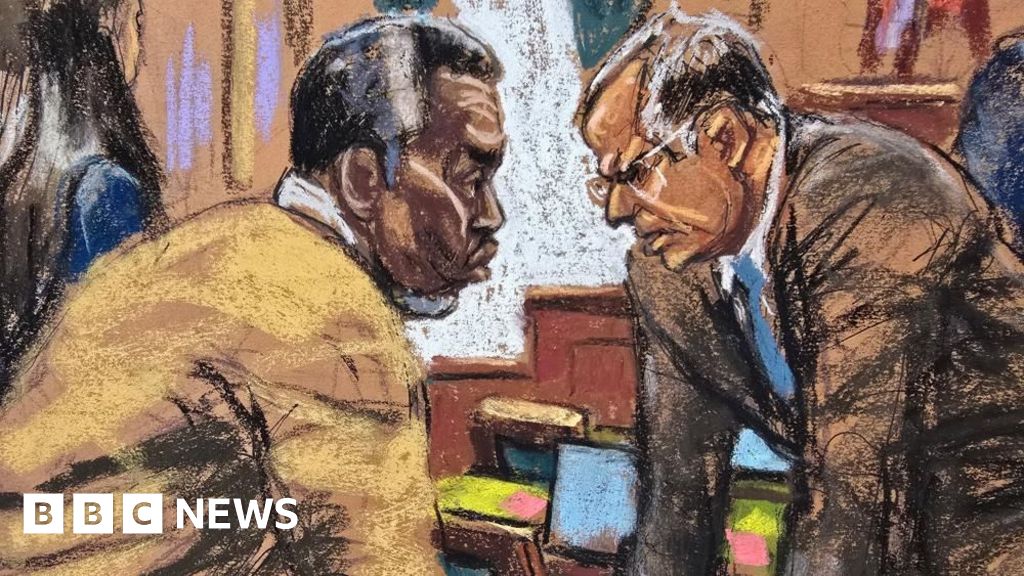Introduction to the Case
The trial of American music mogul Sean "Diddy" Combs, who was accused of leading a sex trafficking ring, has ended with two guilty verdicts and an acquittal on three other charges. Combs, 55, was found guilty of two counts of transporting individuals for prostitution, related to his ex-girlfriend, singer Cassie Ventura, and another woman known as "Jane". He was not found guilty of the most serious charge of racketeering.
Understanding Racketeering
The charge of racketeering, also known as the RICO (Racketeer Influenced and Corrupt Organizations) Act, is a federal law that was originally designed to take down mob bosses. However, it has since been used in other cases, including sex trafficking, such as the case against R&B singer R. Kelly. To convict someone of racketeering, prosecutors must prove that the individual established a network of loyal associates to conduct a criminal enterprise, committing crimes such as sex trafficking, kidnapping, and obstruction of justice.
The Verdict
Combs’ acquittal on the racketeering charge is likely seen as a significant win for his legal team. His lawyers had tried to undermine the claim by asking witnesses if Combs’ employees had ever participated in the "freak-offs". Cassie Ventura, the star witness for the prosecution, said she didn’t think they were present. Defense lawyers argued that the case couldn’t be considered racketeering if Combs’ employees didn’t knowingly participate.
Guilty Verdicts
Combs was convicted of two counts of transporting individuals for prostitution, related to Ms. Ventura and "Jane". This means that the jury found Combs guilty of transporting the two women to places where they would engage in sex acts and prostitution. The crime is derived from the Mann Act, a US federal law that was enacted in 1910 to combat human trafficking and sexual exploitation of women.
The Mann Act
The Mann Act is a US federal law that prohibits the transportation of people across state borders for illegal sex acts or prostitution. The law was initially referred to as the "White Slave Traffic Act" and has been used to criminalize certain forms of consensual activity, including interracial relationships. Combs’ lawyers referenced this history in an unsuccessful attempt to get one of the charges against the rapper dismissed, arguing that he was being pursued unfairly because of his race.
Prison Time
Combs faces a maximum penalty of 10 years for each of the two counts of transporting individuals for prostitution. According to the verdict, his lawyer Marc Agnifilo immediately requested that his client be released from federal custody until his sentencing, and proposed a bond of $1 million. However, a judge denied this request and said that the hip-hop mogul would remain in prison until he is sentenced.
Other Allegations
Regardless of this trial, Combs faces a series of complaints that accuse him of rape and assault. Tony Buzbee, a lawyer in Texas who is handling some of these cases, said that more than 100 women and men from the US have either filed complaints against the rap mogul or intend to. In December 2023, a woman known in court files as "Jane Doe" claimed she was "raped" by Combs and others in 2003 when she was 17 years old.
Background on Combs
Combs, who has also gone by the names Puff Daddy, P. Diddy, Love, and Brother Love, rose to fame in the hip-hop scene in the 1990s. His early success in music included launching the careers of Mary J. Blige and Christopher Wallace, also known as Biggie Smalls or The Notorious B.I.G. His music label, Bad Boy Records, became one of the most influential labels in rap and expanded to include Faith Evans, Ma$e, 112, Mariah Carey, and Jennifer Lopez.
Business Career
Combs has also had a successful business career outside of music, including a deal with the British beverage company Diageo to promote the French vodka brand Cîroc. In 2023, he released his fifth album, The Love Album: Off The Grid, and received his first solo Grammy nomination. He was also named a global icon at the MTV Awards.
Jury Selection
Dozens of potential jurors were screened by the court, including those who had seen a long list of places and people that could be mentioned during the trial, with names like Kanye West and Kid Cudi. Potential jurors also had to fill out questionnaires that asked whether they had "views on hip-hop artists" or "feelings about violence, sexual assault". The judge reminded the court several times of the importance of selecting a fair and impartial jury.
Sentencing
Judge Arun Subramanian proposed October 3 as the sentencing date for Combs, but the defense requested an expedited schedule. The lawyers will meet again on July 8 to continue discussing the schedule. The judge said that Combs would receive 10 months of credit for time served. While the rapper faces a maximum penalty of 10 years for each count, it is up to the judge to decide how long he will ultimately serve.

